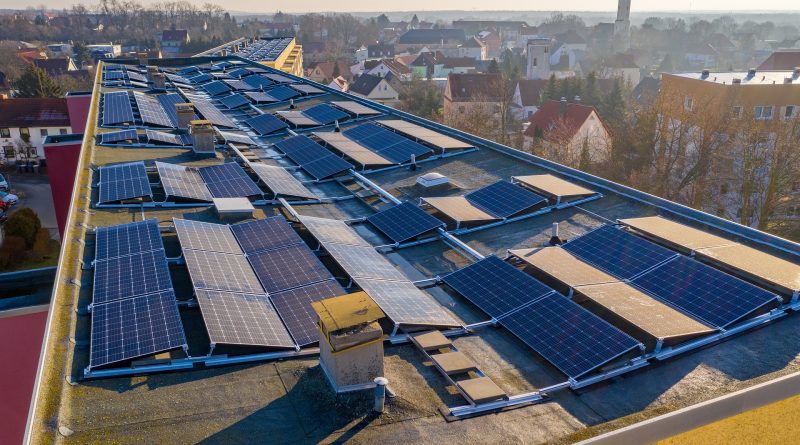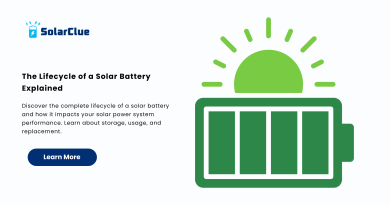Types of Solar Panels: A Comprehensive Guide
Solar panels have become increasingly popular in recent years as more and more people look for sustainable and renewable sources of energy. These panels are designed to convert sunlight into electricity, making them an excellent choice for both residential and commercial applications. However, not all solar panels are created equal. In fact, there are several different types of solar panels that utilize different technologies and materials. In this blog post, we will explore the various types of solar panels available in the market today and help you understand which one might be the best fit for your needs.
Table of Contents
Monocrystalline Solar Panels
Monocrystalline solar panels are one of the oldest and most commonly used types of solar panels. They are made from a single crystal structure, usually silicon, which makes them highly efficient in converting sunlight into electricity. These panels have a sleek black appearance and are often considered more aesthetically pleasing than other types.
One of the key advantages of monocrystalline solar panels is their high efficiency. Due to their highly pure crystalline structure, they can convert a larger percentage of sunlight into usable energy. This efficiency makes them an ideal choice for those with limited roof space or who want to maximize their solar energy production.
Polycrystalline Solar Panels
Polycrystalline solar panels, also known as multicrystalline panels, are another popular option for solar energy generation. Unlike monocrystalline panels, these are made up of multiple silicon crystals, hence the name. Polycrystalline panels have a distinctive blue color that differentiates them from their monocrystalline counterparts.
While polycrystalline panels may not be as efficient as monocrystalline panels, they are generally more affordable. This affordability factor has made them a popular choice among homeowners and businesses looking to install solar panels on a budget. Additionally, advances in technology have significantly improved the efficiency of polycrystalline panels in recent years, closing the gap between the two types.
Thin-Film Solar Panels
Thin-film solar panels are a unique type of solar panel that utilizes different materials and manufacturing processes compared to crystalline panels. These panels are made by depositing a thin layer of photovoltaic material onto a substrate, such as glass or metal. This thin-film technology allows for greater flexibility and lower weight compared to traditional solar panels.
One of the significant advantages of thin-film solar panels is their versatility. They can be integrated into different building materials, such as windows, roofs, or even backpacks, providing a seamless and inconspicuous energy generation solution. However, thin-film panels generally have lower conversion efficiencies compared to crystalline panels, which means more surface area is required to generate the same amount of power.
Bifacial Solar Panels
Bifacial solar panels are a relatively new addition to the solar panel market. These panels have the unique ability to generate energy from both sides, capturing sunlight from above and reflecting surfaces below, such as the ground or a white roof. This innovative design allows for increased energy production and represents a significant advancement in solar technology.
The efficiency of bifacial panels depends on several factors, such as the albedo of the reflecting surface and the mounting angle. When deployed in the right conditions, bifacial solar panels can provide higher energy yields compared to traditional solar panels. These panels are particularly suitable for installations where the reflected light plays a significant role, such as those placed on a rooftop near a reflective building surface.
Conclusion
Diversify your energy portfolio with SolarClue®’s comprehensive guide on the types of solar panels. Monocrystalline panels offer high efficiency for residential installations, while polycrystalline panels balance cost and performance. Thin-film panels provide flexibility for unique applications. SolarClue® explains temperature considerations and recommends solutions for optimal performance. Bifacial panels enhance energy production, especially in installations with reflective surfaces. Discover the aesthetics of building-integrated photovoltaics (BIPV) and solar tiles for architecturally integrated solar solutions. SolarClue® provides insights into cost variations and ensures a personalized approach, guiding consumers in selecting the most suitable panel type for their preferences, budget, and energy requirements. Contact us for a diversified and sustainable energy future.
Frequently Asked Questions
The main types include monocrystalline, polycrystalline, and thin-film solar panels. Monocrystalline panels are highly efficient and sleek, polycrystalline panels offer a balance of cost and efficiency, while thin-film panels are flexible and suitable for specific applications.
Certainly, SolarClue® provides insights into the high efficiency of monocrystalline panels, making them ideal for residential installations. They are space-efficient and perform well in varying light conditions.
Polycrystalline panels are cost-effective but slightly less efficient. Consumers should consider budget constraints and available roof space when choosing between monocrystalline and polycrystalline panels.
Thin-film panels are flexible and lightweight, making them suitable for curved surfaces or applications like solar shingles. SolarClue® guides consumers in assessing whether thin-film panels align with their specific installation
SolarClue® provides insights into the temperature sensitivity of solar panels and recommends solutions, such as proper installation angles and ventilation, to optimize performance in different climates.
Bifacial panels capture sunlight from both sides, enhancing energy production. SolarClue® explains their benefits and recommends bifacial panels for installations with reflective surfaces or elevated mounts.
SolarClue® advises consumers on maintenance practices tailored to each panel type, ensuring longevity and optimal performance. Regular cleaning and inspections are essential for sustained efficiency.
BIPV and solar tiles seamlessly integrate into building structures, providing an aesthetically pleasing alternative. SolarClue® guides consumers in exploring these options for architecturally integrated solar solutions.
SolarClue® explains cost variations among panel types and assists consumers in assessing the overall cost-effectiveness, factoring in efficiency, durability, and maintenance considerations.
SolarClue® offers personalized consultations, considering consumer preferences, budget constraints, and energy needs. The expert guidance ensures consumers make well-informed decisions when selecting the most suitable solar panel type.




